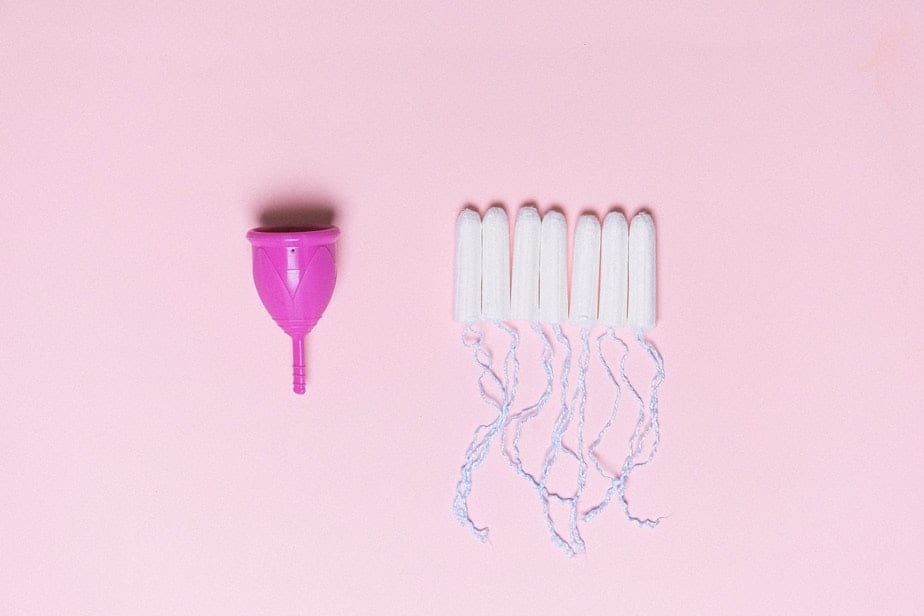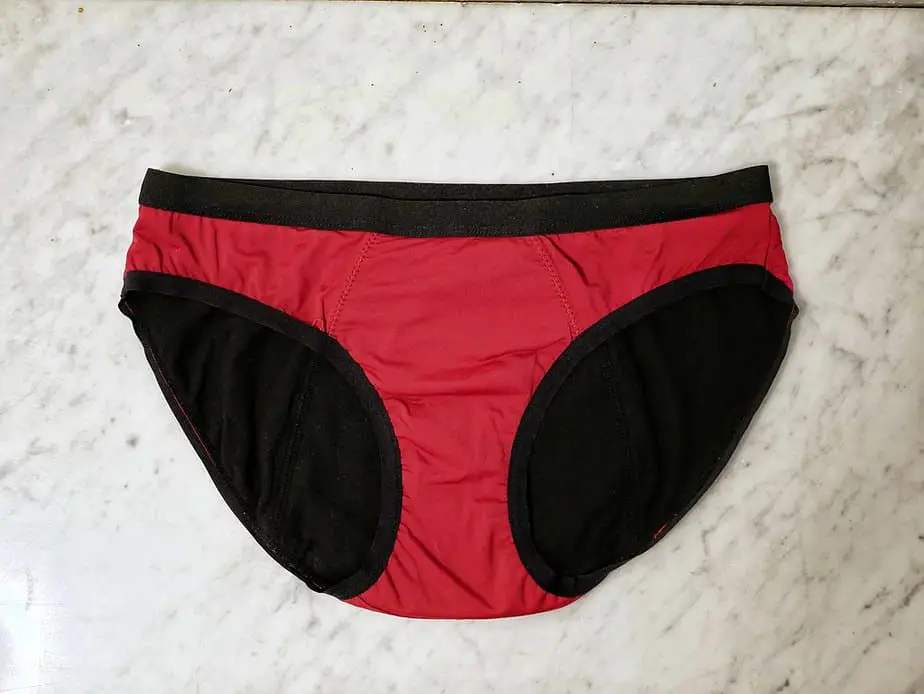Generally speaking, female divers have an advantage over male divers because they are able to conserve oxygen better and dive for longer due to their smaller frame. So, to level the playing field, God decided women would have to deal with periods, and thus balance was achieved.
In all seriousness, having periods does not preclude you from scuba diving, but it can certainly make things more difficult. Women who will be scuba diving while on their period have to deal with cramps, pains, and possible leakage which can be very uncomfortable.
Currently, there are many misconceptions about the female body in regards to the difficulties women may encounter while participating in water sports like scuba diving, snorkeling, surfing, and so on. To be fair, most of the confusion comes from curious and ignorant men wondering what’s going on with their better half, but even women are unsure if they can enter the water while on their period.
As long as a woman knows what to expect and prepares adequately for the inconveniences that her period will cause, there’s no reason why she cannot scuba dive. In fact, some women even report that diving has alleviated some of the usual pains they experience, though this is anecdotal.
In this article, we will discuss the most pressing issues women may face while scuba diving while on their period, as well as how to deal with them so that this natural process does not disrupt their enjoyment of this activity.
How to scuba dive on your period
You will be happy to learn that women who dive while menstruating do not necessarily have to use any specialized products. The standard feminine hygiene products like tampons, menstrual cups, and period discs are still effective even when submerged.
Plus, they are typically discreet and comfortable to wear which makes them great solutions to deal with period blood while diving.
Use tampons

This is the most commonly used solution by female divers since it is convenient and can be worn throughout the dive.
When submerged, the water pressure can help to keep the tampon firmly inside, helping it to work as effectively as it does on land.
The main problem with tampons has less to do with anything during the actual dive, but rather what comes afterwards.
Though the tampon may be correctly doing its job on one end, once the string gets wet from the sea water it can draw the fluid from the inside to the outside, leaving visible stains.
To address this, you should change your tampon as quickly as possible after the dive, or to wear period swimwear (we’ll discuss this in its own section below).
If you are on a boat and do not have the privacy or opportunity to change immediately, your best options are to: wear dark colored swimwear (or the aforementioned period swimwear) that can hide any stains, or to keep the bottom half of your wetsuit on so that no one will notice.
Use menstrual cups or period discs
Another option is to use a menstrual cup. This option is becoming increasingly popular because it’s more sustainable than using a bunch of tampons each time you scuba dive. Did we mention that menstrual cups are reusable?
To use it, simply place it inside your body before diving, then pull it out to empty it. Rather than tossing them away like you would a tampon, simply wash it and use it the next time you scuba dive.
There are many benefits to using menstrual cups over tampons.
As we have repeatedly mentioned, menstrual cups are reusable, which can save you money very quickly because you don’t have to throw away a cup every time you dive.
Next, menstrual cups can hold around 30 ml of menstrual fluid, whereas tampons only absorb about 10 ml of fluid on average.
Due to menstrual cups’ design, there is no string dangling around to worry about.
And lastly, this is a “green” option because there is no waste product that needs to be discarded.
All of these benefits make using a menstrual cup an attractive and effective option for women scuba diving while on their period.
Use period-proof swimwear

Period-proof swimwear are special bikinis specifically designed to have a gusset that retains the inner liquids, letting you swim without people noticing.
For women who do not like the feeling of sticking anything up their private parts, period-proof swimwear can be worn for lighter days toward the end of your flow.
That said, it is not recommended to rely on this product alone on your heavier days. You can use period-proof swimwear in conjunction with a tampon or menstrual cup for double the protection. Sorry, but there’s just no getting around using a tampon or menstrual cup.
Since these swimsuits have special features for menstruating women, unfortunately they will be more expensive than a regular bikini.
A question you might have is whether you can dive with a menstrual pad, since period-proof swimwear seems to serve a similar function.
Unfortunately, menstrual pads are not effective underwater because they will end up absorbing all of the water around them, not just the blood.
They will quickly become saturated with water and effectively useless. Also, you will feel like you are wearing a diaper once the pad has absorbed enough fluids. Even tampons are more effective, but your best bet is to use a menstrual cup and/or period-proof swimwear.
Menstruation and the risk of decompression sickness
Based on personal anecdotes, diving while menstruating appears to be a non-issue, though a study did suggest that there may be a link between menstruation and an increased risk of decompression sickness (DCS).
Based on this inconclusive study, it was found that women were twice as likely to experience DCS during the first week of their menstrual cycle (the week in which the bleeding occurs).
However, the reason why more research needs to be done is that there could be many other factors causing the increased risk of DCS, such as dehydration, which is another common factor that can lead to DCS. It may also vary depending on the individual.
Based on many female divers’ experiences, most of them do not experience any problems with DCS while on their period, though it would be wise to be vigilant and to play it safe with conservative immersions while menstruating.
For example, consider doing shorter, shallower dives, or to decrease the frequency of diving to be absolutely certain that you have fully off-gassed.
Frequently asked questions
Does period blood attract sharks?

You might have heard that sharks can detect a single drop of blood in the ocean from a mile away. If that’s true, then would a woman on her period be signaling to all nearby sharks that there is a vulnerable human waiting to be chomped on?
What researchers have found is that while sharks do have an acute sense of smell (among other killer senses), all of these senses are tuned to detect fish, not humans! Sharks simply couldn’t care less about human blood, and in fact, they may even be scared of humans.
Specifically, sharks have such an acute sense of smell they can detect the gastric juices in fish blood and they will find none of that in period blood. Period blood consists of the lining of the uterus, cervical mucus, and other secretions that do not interest sharks.
Furthermore, when your period is mixed in water, it will be diluted, leaving behind only the faintest trace of blood.
Thus, the myth that period blood will send sharks into a feeding frenzy is completely untrue. Uninformed people making shark week jokes for the umpteenth time need to stop because it’s getting old.
Do I have to wear feminine products while diving?
If all of this sounds like too much of a hassle and you don’t want to deal with it, you’re not alone in your thinking.
No, we are not suggesting you stop diving while menstruating, though that is what some women do. Many female divers decide to forgo feminine products entirely and go scuba diving without any period protection.
The average woman loses between 10-80 ml of blood over 2 to 7 days during her menstruation. If you do the math, you will only be spending a few hours during that time underwater, during which time only a few ml of blood will leave your body.
Plus, any blood that does leak will be quickly diluted by the vast amount of water around you, meaning no one will even notice it, not even yourself.
The issue is once you’re back on the surface; you need to quickly change out of your wetsuit and use any feminine products as needed. You’ll also need to thoroughly clean your wetsuit, particularly around the crotch area.
You can try a hybrid approach where you only use feminine products on your heavier days. Then on your lighter days, you can stop using them and just wear a black bikini bottom so that if you do get a stain, it’s not very obvious.
Does scuba diving prevent menstruation?
No, scuba diving and being exposed to high water pressure will not stop your period. The lining on your uterus will shed regardless.
What might be happening is the water pressure and buoyancy is preventing the blood from slowing out. So in some ways the period has been stopped, but once you return to the surface, gravity will make it flow out like normal.
It is for this reason that you should still wear feminine products like a menstrual cup so that you do not end up with a messy situation once you’re above the surface of the water.
Can scuba diving alleviate period cramps?
You should not bank on scuba diving alleviating your period cramps. It might, it might not. If it doesn’t, then you will regret going diving while on your period. After all, it’s hard to concentrate when your lower abdomen is in constant pain; you’ll probably have to end your dive.
The theory that scuba diving can potentially help deal with period cramps might be from the fact that you get a natural “high” when exercising. It simply feels good to be active and moving around, and scuba diving is a great way to exercise.
You might end up having so much fun that you forget you would otherwise be experiencing painful period cramps. But again, don’t bank on this being the case; you might just end up with the worst diving experience of your life.
If you suffer from constant and severe period cramps, go see a doctor and stop reading articles online!
Parting words
In this article, we have given you many things to think about regarding how you can approach scuba diving while menstruating. However, a big question you should ask yourself is: should I even scuba dive while on my period?
This is a personal decision and not something that we can tell you to do (or not to do). It’s even harder to answer this question when you factor in that no two women are the same.
Some women are able to function at near 100% capacity while menstruating, and the only inconvenience is the mess that it can cause. On the other hand, some women have such extreme side effects that they couldn’t scuba dive even if they wanted to.
You know your body more than anybody else; more than some stranger on the internet and even more than other women who think they know you better than you know yourself. At the end of the day, depending on how your body responds to your menstruation cycle, you have to make a decision.
When it comes to an activity with as many risks as scuba diving, we feel that you should err on the side of caution. If you thought you could do it but you suddenly experience painful period cramps, don’t hesitate to end the dive.
Listen to your body and make a firm decision to protect yourself. Don’t feel ashamed to signal for help or end your dive prematurely. Your life is worth more than any embarrassment, so please treasure it as such.


